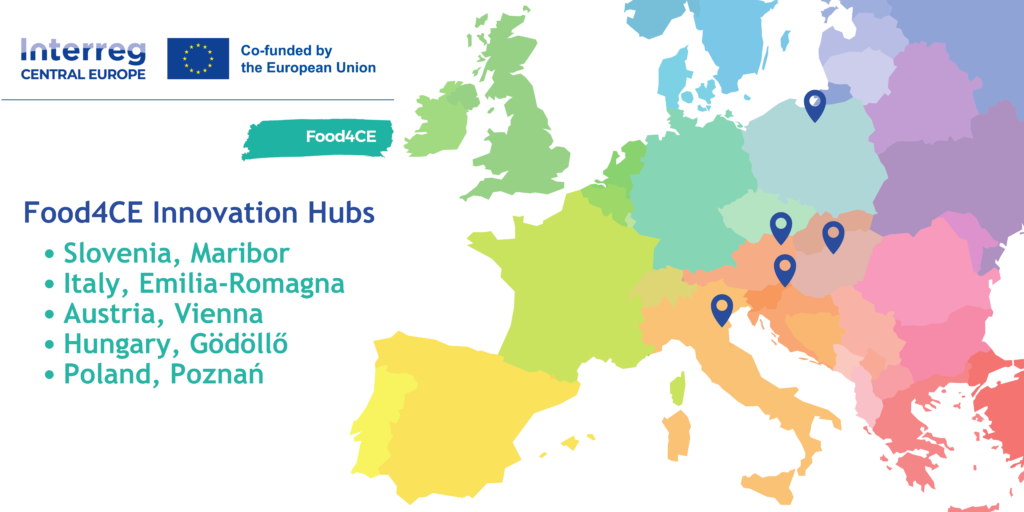This pilot activity will therefore focus on gathering knowledge, experiences and best practices in the field of logistics operations for AFNs to develop a useful tool for creating a repository of appropriate solutions and concepts for small-scale alternative food producers and logistics operators.
The development of Food4CE methodologies, learning actions, capacity building and pilot actions will be based on a joint transnational dialogue that integrates partners’ needs, ideas, priorities and actions. Focus groups and semi-direct face-to-face or online interviews with network managers, manufacturers and retail shop representatives will be organised to identify the main challenges in logistics and consequent innovative approaches for SFSC and logistics solutions.
Food4CE pilot activities include creations of 1 transnational innovation hub and 5 regional/local hubs. Local innovation hubs will share their knowledge and needs with other innovation hubs (in participating countries), thereby creating a unique transnational support network for SFSC in EU.
Organised as a living lab, the innovation hubs will enable active knowledge transfer between researchers, business experts, food producers, logistics operators and policy makers in order to advance the creation of new and developed SFSC solutions throughout Europe and beyond.
Local Innovation Hubs will be established in the five regions involved in the project: Slovenia, Italy, Austria, Hungary and Poland.
 The Food4CE project therefore represents a significant step towards improving the sustainability and resilience of food supply systems in Europe. By creating a network of local and transnational innovation hubs, Food4CE is able to address the current challenges of Alternative Food Networks. These hubs will serve as platforms to share knowledge, foster collaboration and develop innovative solutions in logistics and distribution. The ultimate goal is to build a strong and mutually supportive network that will benefit AFNs across Central Europe, contributing significantly to reducing the carbon footprint of food distribution and improving the overall sustainability of the food supply chain. Pilot activities in Slovenia, Italy, Austria, Hungary and Poland will lay the foundation for a more integrated and collaborative approach to food supply systems, serving as a model for other regions and initiatives worldwide.
The Food4CE project therefore represents a significant step towards improving the sustainability and resilience of food supply systems in Europe. By creating a network of local and transnational innovation hubs, Food4CE is able to address the current challenges of Alternative Food Networks. These hubs will serve as platforms to share knowledge, foster collaboration and develop innovative solutions in logistics and distribution. The ultimate goal is to build a strong and mutually supportive network that will benefit AFNs across Central Europe, contributing significantly to reducing the carbon footprint of food distribution and improving the overall sustainability of the food supply chain. Pilot activities in Slovenia, Italy, Austria, Hungary and Poland will lay the foundation for a more integrated and collaborative approach to food supply systems, serving as a model for other regions and initiatives worldwide.
